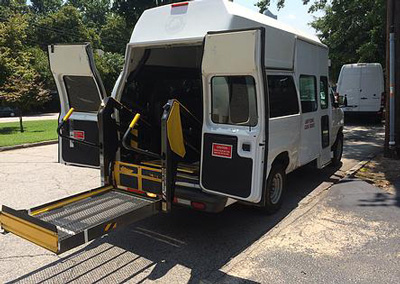Obtainable and Affordable Medical Transport Options for Seamless Health Support
In the world of healthcare, the ease of access and affordability of clinical transport are vital in guaranteeing people can access the care they require when they need it. From non-emergency medical transport solutions to ingenious options like telehealth, the landscape of medical transportation is developing to fulfill the diverse requirements of individuals.
Non-Emergency Medical Transportation Solutions

These services are staffed by trained experts who focus on individual convenience and safety and security throughout transit. Chauffeurs are equipped to take care of people with varying clinical needs and guarantee that all journeys are trouble-free and smooth - Medical Transportation Services Near Me. Additionally, non-emergency medical transportation solutions often utilize specialized cars that are wheelchair-accessible, making them ideal for a vast array of patients with different mobility demands
Volunteer Vehicle Driver Programs
Volunteer chauffeur programs are instrumental in giving transport help for individuals seeking non-urgent treatment. These programs rely on the generosity of volunteers who contribute their time and vehicles to aid transportation individuals to and from clinical visits. By utilizing volunteer vehicle drivers, companies can supply a cost-efficient solution for people that may not have accessibility to trusted transportation.
Among the crucial advantages of volunteer motorist programs is the customized care and interest that clients obtain. Unlike typical transportation solutions, volunteer motorists typically develop a connection with the individuals they aid, creating a thoughtful and helpful setting throughout what can be a stressful time. In addition, volunteer chauffeur programs can aid bridge the space for individuals residing in underserved or rural locations where public transportation choices may be limited.
Public Transport Options

Among the essential benefits of mass transit is its extensive schedule in country and urban areas alike. This substantial network allows clients from varied histories to take a trip to medical visits with loved one ease. Additionally, mass transit systems are often outfitted to accommodate people with handicaps, providing available travel choices for those with movement obstacles.

Ride-Sharing and Transportation Network Companies
The evolution of modern-day transport alternatives for clinical functions prolongs beyond conventional public systems like trains and buses to include the ingenious realm of ride-sharing and transportation network companies. Ride-sharing solutions such as Uber and Lyft have actually transformed the way people take a trip to clinical visits, using comfort and versatility to patients who might not have accessibility to their lorries or typical public transportation. These platforms permit individuals to request a trip with the touch of a button on their smart devices, supplying important site door-to-door solution that can be particularly valuable for individuals with movement challenges or those requiring assistance.
Transport network firms (TNCs) have actually likewise played a substantial duty in connecting the gap in clinical transportation solutions. Business like Veyo and RoundTrip focus on click to read more non-emergency medical transportation, satisfying people that require a higher level helpful during their journeys to medical centers. By partnering with health care companies and insurance providers, TNCs ensure that individuals can access timely and trusted transport solutions, eventually contributing to improved health results and person contentment.
Telehealth and Virtual Appointments
Enhancing healthcare access and benefit, telehealth and online consultations have become pivotal components in modern-day medical methods, changing the way clients connect with doctor. Telehealth leverages modern technology to assist in remote interaction in between patients and health care professionals, supplying a wide selection of solutions such as virtual assessments, remote monitoring, and digital prescriptions. Virtual appointments enable people to look for medical advice, diagnosis, and treatment from the comfort of their homes, getting rid of the requirement for physical brows through to medical care centers. This approach not just conserves time and reduces transportation costs for clients however likewise improves the general performance of medical care delivery.
Additionally, telehealth plays a critical duty in expanding medical services to underserved neighborhoods, backwoods, and people with limited mobility. By breaking down geographical obstacles and boosting health care outreach, telehealth advertises very early intervention, connection of care, and person interaction. As technology remains to development, telehealth is poised to play a significantly considerable role fit the future of medical care shipment, fostering enhanced health results and patient satisfaction.
Final Thought

From non-emergency medical transport services to cutting-edge services like telehealth, the landscape of clinical transportation is advancing to satisfy the varied requirements of patients.Non-Emergency Medical Transportation Provider help with the prompt and safe transport of individuals needing news non-urgent medical care to and from health care facilities.The advancement of modern-day transport options for clinical objectives prolongs beyond standard public systems like trains and buses to encompass the ingenious world of ride-sharing and transportation network business.Transportation network firms (TNCs) have likewise played a substantial role in connecting the void in medical transportation solutions. Non-Emergency Medical Transport Services, Volunteer Motorist Programs, Public Transport Options, Ride-Sharing and Transport Network Companies, and Telehealth and Virtual Consultations all play a vital duty in attending to transport obstacles to healthcare access.